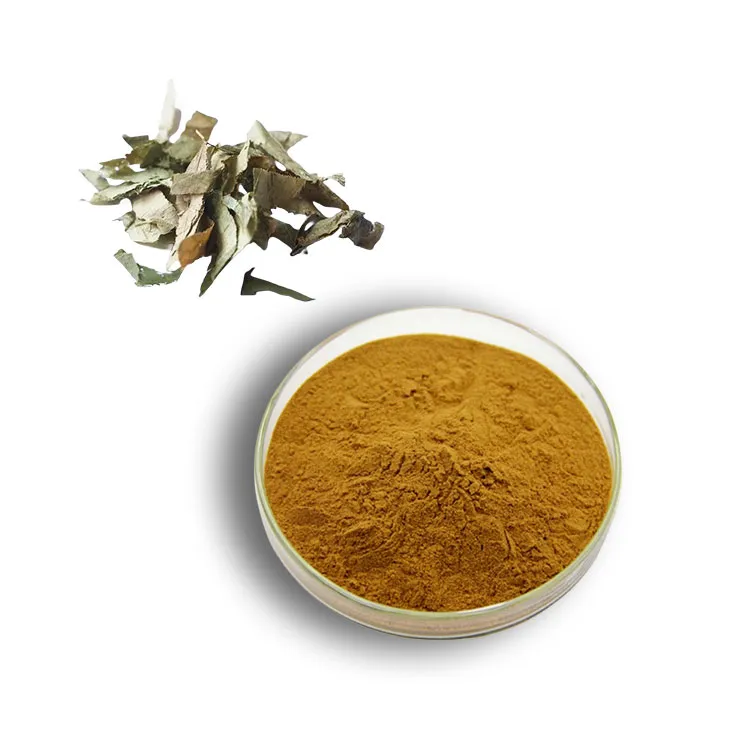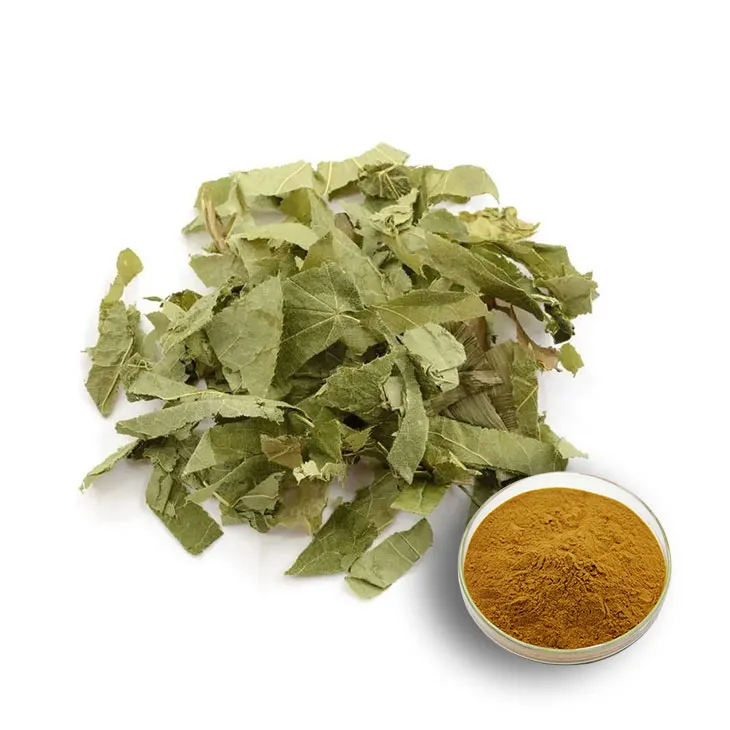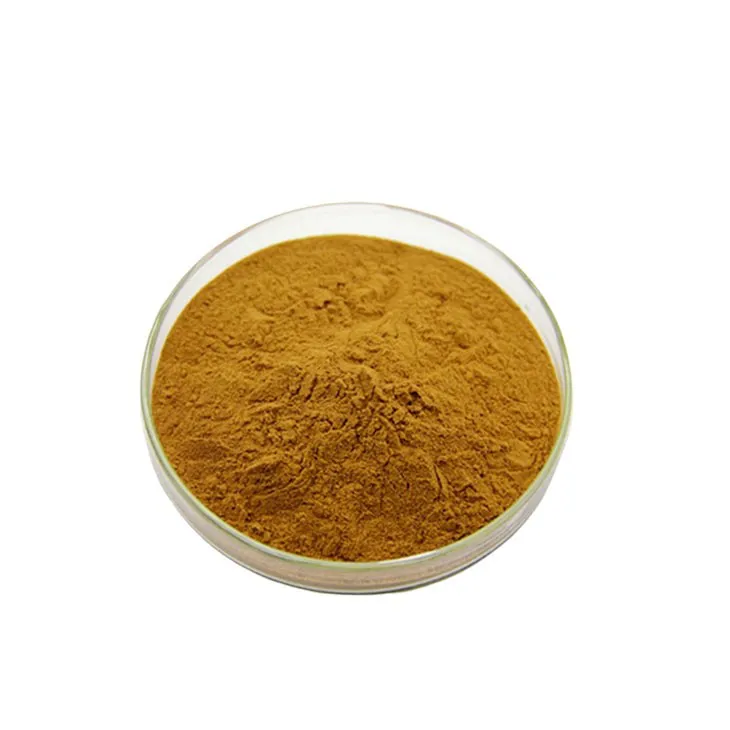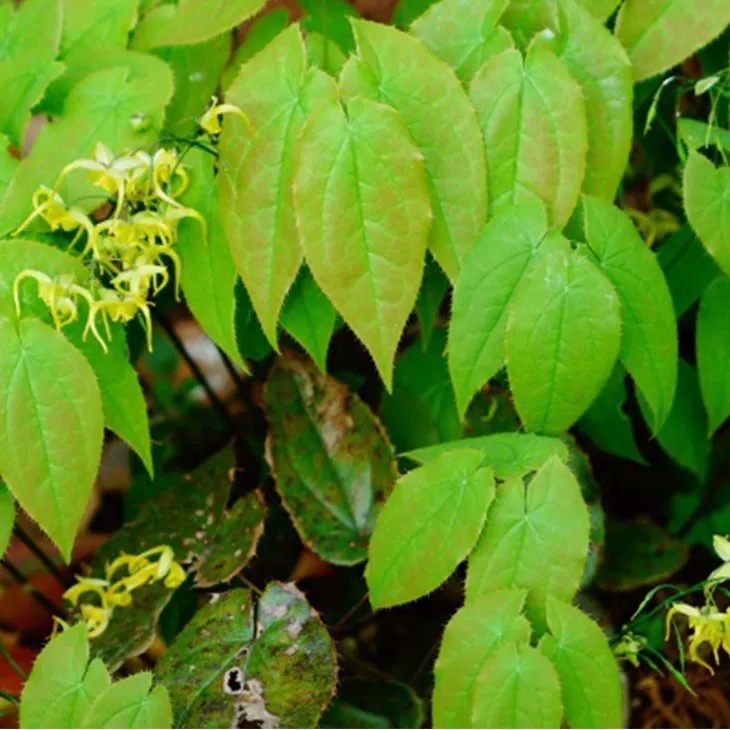- 0086-571-85302990
- sales@greenskybio.com
Epimedium extract powder can reduce high blood pressure.
2024-11-14

1. Introduction to Hypertension
Hypertension, commonly known as high blood pressure, is a highly prevalent and significant global health issue. It is defined as a persistent elevation of blood pressure in the arteries. Blood pressure is measured as two values: systolic pressure (the pressure when the heart contracts) and diastolic pressure (the pressure when the heart is at rest between beats). A normal blood pressure is typically around 120/80 mmHg. When the systolic pressure is consistently 140 mmHg or higher, or the diastolic pressure is 90 mmHg or higher, it is considered hypertension.
There are two main types of hypertension: primary (essential) hypertension and secondary hypertension. Primary hypertension is the most common, accounting for about 90 - 95% of all cases, and its exact cause is often multifactorial, involving genetic, lifestyle, and environmental factors. Secondary hypertension, on the other hand, is caused by an underlying condition such as kidney disease, hormonal disorders, or certain medications.
The consequences of untreated hypertension can be severe. It is a major risk factor for cardiovascular diseases such as heart attacks, strokes, heart failure, and kidney disease. It also increases the risk of developing peripheral artery disease and vision problems. Given its prevalence and potential consequences, effective management of hypertension is crucial.

2. Overview of Epimedium extract powder
Epimedium, also known as Horny Goat Weed, is a plant that has been used in traditional Chinese medicine for centuries. Epimedium extract powder is derived from this plant through various extraction methods. It contains a variety of bioactive compounds, such as flavonoids, polysaccharides, and alkaloids.
Traditionally, Epimedium has been used for a range of health purposes, including enhancing sexual function, strengthening bones, and improving overall vitality. However, recent research has also focused on its potential role in treating other health conditions, particularly in relation to cardiovascular health and hypertension.

3. Mechanisms of Epimedium extract powder in Reducing Hypertension
3.1 Vasodilation through Nitric Oxide Release
One of the proposed mechanisms by which Epimedium extract powder may reduce hypertension is through its action on blood vessels. It is believed to stimulate the release of nitric oxide (NO) in the endothelial cells lining the blood vessels. Nitric oxide is a powerful vasodilator, which means it relaxes the smooth muscle cells in the blood vessel walls, causing the vessels to widen. When blood vessels dilate, the resistance to blood flow decreases, which in turn leads to a reduction in blood pressure.
Studies have shown that certain components in Epimedium extract powder can interact with the endothelial cells, activating the enzymes involved in nitric oxide production. For example, some flavonoids present in the extract may upregulate the expression of endothelial nitric oxide synthase (eNOS), the enzyme responsible for synthesizing nitric oxide. This increased production of nitric oxide then promotes vasodilation, contributing to the antihypertensive effect.
3.2 Influence on the Renin - Angiotensin - Aldosterone System (RAAS)
The renin - angiotensin - aldosterone system (RAAS) plays a crucial role in blood pressure regulation. Renin is an enzyme secreted by the kidneys in response to low blood pressure or low sodium levels. Renin acts on angiotensinogen, a plasma protein, to produce angiotensin I. Angiotensin - converting enzyme (ACE) then converts angiotensin I to angiotensin II, which is a potent vasoconstrictor and also stimulates the release of aldosterone from the adrenal glands. Aldosterone promotes sodium and water retention, increasing blood volume and ultimately blood pressure.
Epimedium extract powder may interfere with the RAAS at multiple levels. Some studies suggest that it can inhibit the activity of ACE, reducing the conversion of angiotensin I to angiotensin II. By decreasing the levels of this vasoconstrictor, blood vessels are less likely to constrict, and blood pressure can be lowered. Additionally, there is evidence that Epimedium may also have an impact on aldosterone secretion, further influencing blood volume and pressure regulation.

4. Evidence from Animal Studies
Animal studies have provided valuable insights into the potential of Epimedium extract powder in reducing hypertension.
In rodent models of hypertension, such as spontaneously hypertensive rats (SHRs), treatment with Epimedium extract powder has shown promising results. For example:
- Blood Pressure Reduction: Administration of Epimedium extract powder over a certain period led to a significant decrease in systolic and diastolic blood pressure in SHRs compared to control groups. This reduction was often associated with the improvement in vascular function, as demonstrated by enhanced vasodilation responses.
- End - Organ Protection: Besides reducing blood pressure, Epimedium treatment also showed beneficial effects on end - organs affected by hypertension. In the heart, it was observed to reduce cardiac hypertrophy, which is a common consequence of long - term hypertension. In the kidneys, it helped to preserve renal function and reduce proteinuria, a sign of kidney damage.
- Mechanistic Studies in Animals: Animal studies have also allowed for in - depth investigations into the mechanisms underlying the antihypertensive effects of Epimedium. For instance, researchers have been able to study the changes in gene expression related to nitric oxide production and the RAAS in animal tissues. These studies have further supported the proposed mechanisms of action, such as the upregulation of eNOS and the inhibition of ACE.

5. Evidence from Clinical Studies
While animal studies are important, clinical studies in humans are essential to determine the true potential of Epimedium extract powder in treating hypertension.
Some small - scale clinical trials have been conducted, and they have shown mixed results:
- Positive Findings: In a few clinical trials, participants who received Epimedium extract powder supplementation in addition to standard antihypertensive medications showed a further reduction in blood pressure compared to those who only took the medications. These findings suggest that Epimedium may have an additive effect in blood pressure control.
- Limitations of Clinical Studies: However, most of the current clinical studies have limitations. The sample sizes are often relatively small, which may limit the statistical power of the results. There is also a lack of long - term follow - up in many studies, making it difficult to assess the sustainability of the blood pressure - lowering effect. Additionally, the quality of the Epimedium extract powder used in different studies may vary, which could affect the reproducibility of the results.
6. Safety Considerations
When considering the use of Epimedium extract powder for hypertension, safety is a crucial aspect.
Traditional Use and Toxicity: Epimedium has a long history of use in traditional medicine, and generally, it has been considered safe when used appropriately. However, like any herbal product, there is a potential for adverse effects. Some traditional medicine texts mention that excessive use of Epimedium may cause symptoms such as dry mouth, nausea, and dizziness. In animal studies, high - dose administration of Epimedium extract powder has been associated with some liver and kidney function changes, although the significance of these findings in humans is not yet clear.
Drug Interactions: Epimedium may interact with certain medications. For example, it could potentially interact with antihypertensive medications, either enhancing or interfering with their effects. There is also a concern about its interaction with drugs metabolized by the liver, as some components in Epimedium may affect liver enzyme activity. Therefore, if patients are considering using Epimedium extract powder in combination with other medications, they should consult their healthcare providers.
Quality Control: Ensuring the quality of Epimedium extract powder is essential for safety. The purity of the extract, the presence of contaminants, and the standardization of active components can vary between different products. Poor - quality products may not only be ineffective but also pose a risk to health. Regulatory standards for herbal products, including Epimedium extract powder, need to be strengthened to ensure consumer safety.
7. Future Research Directions
Despite the promising initial findings, more research is needed to fully understand the potential of Epimedium extract powder in reducing hypertension.
Larger - scale Clinical Trials: Future studies should aim to conduct larger - scale, well - designed clinical trials. These trials should have sufficient sample sizes to provide more conclusive evidence of the efficacy of Epimedium extract powder in treating hypertension. Long - term follow - up should also be included to assess the long - term safety and effectiveness of the treatment.
Mechanistic Elucidation: Further research is required to fully elucidate the mechanisms of action of Epimedium extract powder. This includes a more detailed study of its effects on the molecular and cellular levels, such as its interaction with specific receptors and signaling pathways involved in blood pressure regulation. Understanding these mechanisms will not only help to confirm its antihypertensive effects but also may lead to the development of more targeted therapies.
Standardization of Extracts: There is a need to standardize the production and composition of Epimedium extract powder. This will ensure the reproducibility of research results and the quality and safety of products available in the market. Standardization should include the identification and quantification of key active components, as well as the establishment of quality control methods to detect contaminants.
8. Conclusion
Hypertension is a common and serious health problem, and there is a continuous search for effective and safe treatment options. Epimedium extract powder shows potential in reducing high blood pressure through mechanisms such as vasodilation via nitric oxide release and influencing the RAAS. While animal studies have provided some encouraging evidence, clinical studies so far have been limited in size and scope. Safety considerations, including potential adverse effects and drug interactions, also need to be carefully evaluated.
Future research, including larger - scale clinical trials and more in - depth mechanistic studies, is essential to determine whether Epimedium extract powder can be a viable addition to the current armamentarium for hypertension management. Until then, patients should rely on evidence - based medical treatments and consult their healthcare providers before considering the use of Epimedium extract powder for hypertension.
FAQ:
Q1: How does Epimedium extract powder act on blood vessels to reduce high blood pressure?
Epimedium extract powder may act on blood vessels by releasing nitric oxide. Nitric oxide is a signaling molecule that can cause vasodilation, which means it widens the blood vessels. When blood vessels are dilated, the resistance to blood flow is reduced, and this can lead to a decrease in blood pressure.
Q2: What is the RAAS and how does Epimedium extract powder influence it?
The Renin - Angiotensin - Aldosterone System (RAAS) is a hormonal system that plays a crucial role in regulating blood pressure. Epimedium extract powder may influence the RAAS, perhaps by interfering with the production or action of some of the hormones in this system. For example, it might affect the release of renin or the action of angiotensin - converting enzyme, but the exact mechanisms are not fully understood yet.
Q3: Are there any side effects of using Epimedium extract powder for reducing high blood pressure?
While current studies suggest its potential in reducing high blood pressure, the safety of using Epimedium extract powder is still not completely clear. Some possible side effects might exist, but more research is needed. It's important to note that any supplement should be used with caution, especially for those with underlying health conditions or taking other medications.
Q4: How reliable are the animal studies on Epimedium extract powder for hypertension?
Animal studies provide important initial evidence about the potential of Epimedium extract powder in reducing high blood pressure. However, they have limitations. Animals may not always respond in the same way as humans do. The results from animal studies can give us clues and directions for further research, but human clinical trials are needed to confirm the findings and determine the true effectiveness and safety in humans.
Q5: Can Epimedium extract powder be used as a substitute for traditional hypertension medications?
At present, Epimedium extract powder cannot be considered as a substitute for traditional hypertension medications. While it shows potential, more research is required to establish its safety and effectiveness fully. Traditional hypertension medications have been extensively studied and proven to be effective in controlling blood pressure. Until more is known about Epimedium extract powder, it should not replace standard medical treatment.
Related literature
- The Effects of Epimedium Extract on Cardiovascular Health"
- "Epimedium and Hypertension: Current Research Findings"
- "Potential of Epimedium in Modulating Blood Pressure through Vascular Mechanisms"
- ▶ Hesperidin
- ▶ citrus bioflavonoids
- ▶ plant extract
- ▶ lycopene
- ▶ Diosmin
- ▶ Grape seed extract
- ▶ Sea buckthorn Juice Powder
- ▶ Beetroot powder
- ▶ Hops Extract
- ▶ Artichoke Extract
- ▶ Reishi mushroom extract
- ▶ Astaxanthin
- ▶ Green Tea Extract
- ▶ Curcumin Extract
- ▶ Horse Chestnut Extract
- ▶ Other Problems
- ▶ Boswellia Serrata Extract
- ▶ Resveratrol Extract
- ▶ Marigold Extract
- ▶ Grape Leaf Extract
- ▶ blog3
- ▶ blog4
- ▶ blog5
-
Organic Tongkat Ali extract powder factory.
2024-11-14
-
How to make powder with ashwagandha extract.
2024-11-14
-
Rosehip extract manufacturers from China.
2024-11-14
-
The best cat's claw extract in nature.
2024-11-14
-
Chinese Dandelion Leaf Extract Suppliers.
2024-11-14
-
Golden Seal Extract
2024-11-14
-
Kupilu Extract
2024-11-14
-
Ginseng Root Extract
2024-11-14
-
Lotus leaf extract
2024-11-14
-
Cactus Extract
2024-11-14
-
Citrus Aurantium Extract
2024-11-14
-
Wheat Germ Extract
2024-11-14
-
Bamboo Leaf extract
2024-11-14
-
Citrus Aurantii Extract
2024-11-14
-
Chia Seed Powder
2024-11-14





















